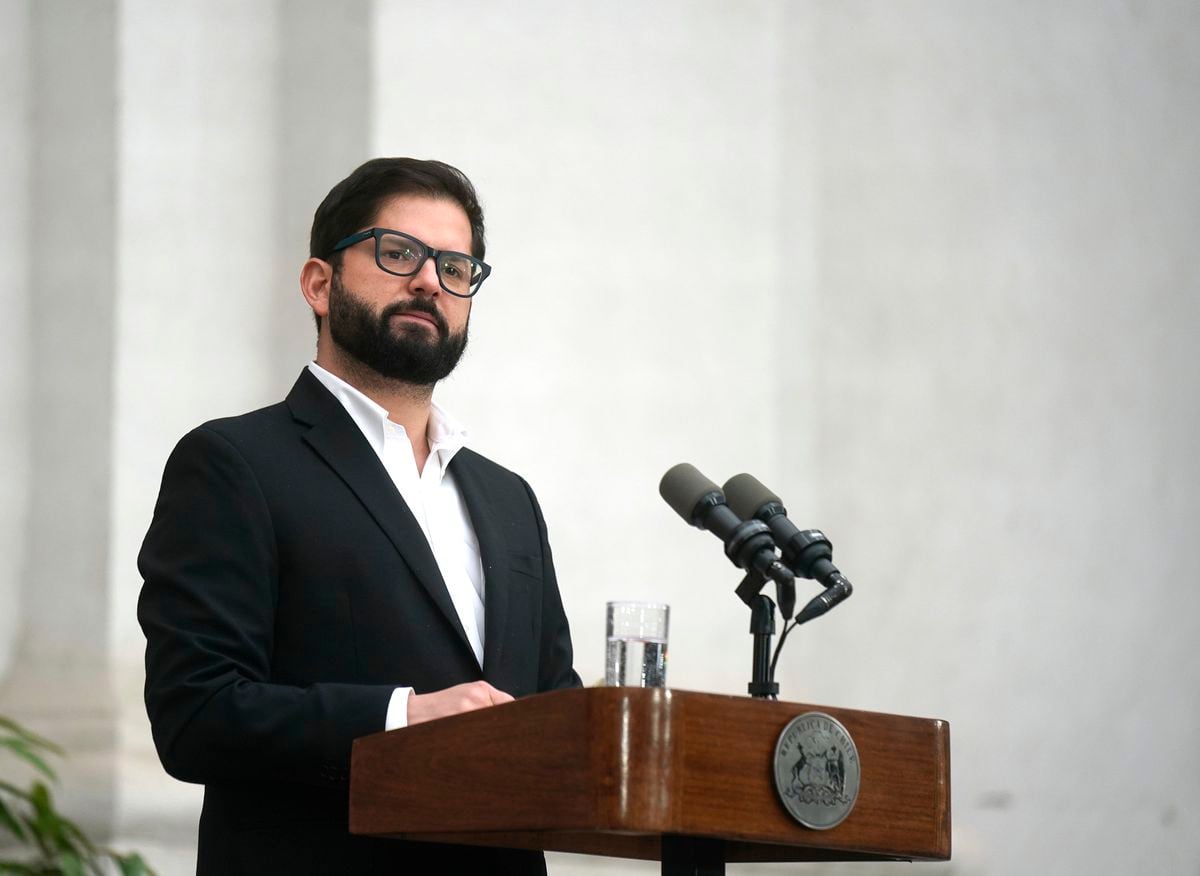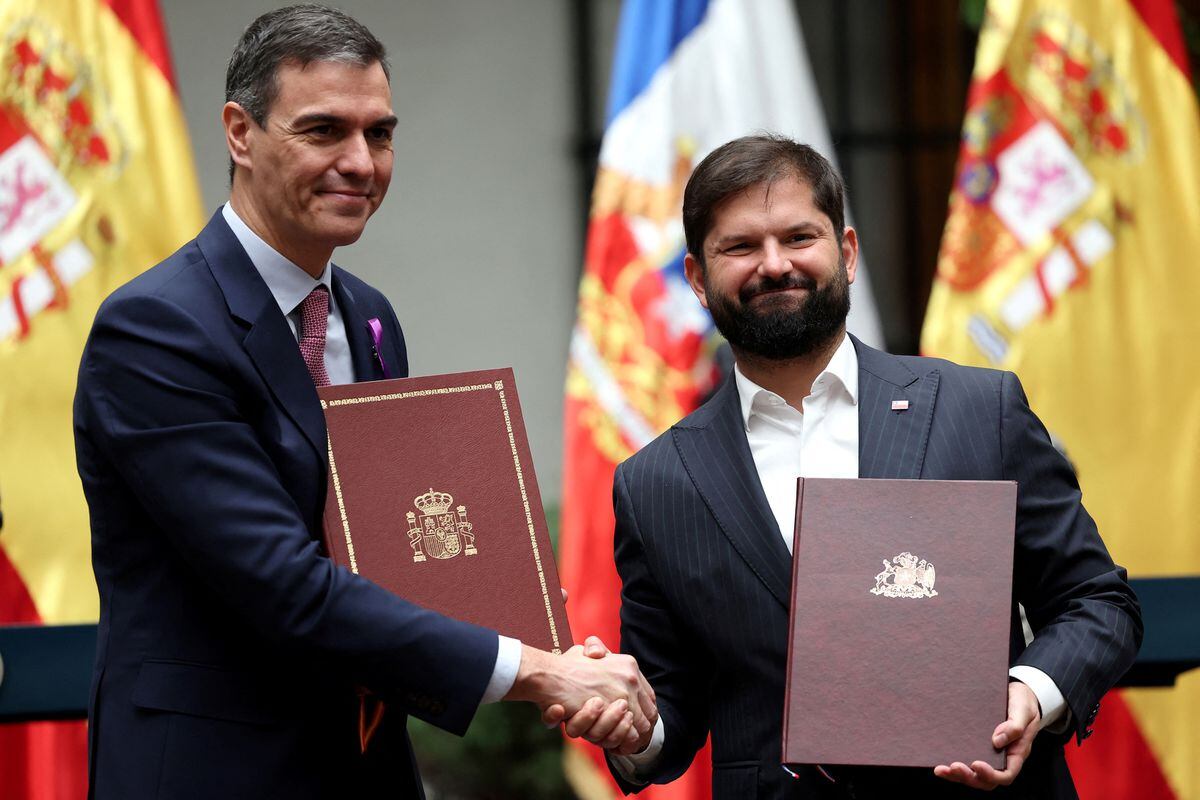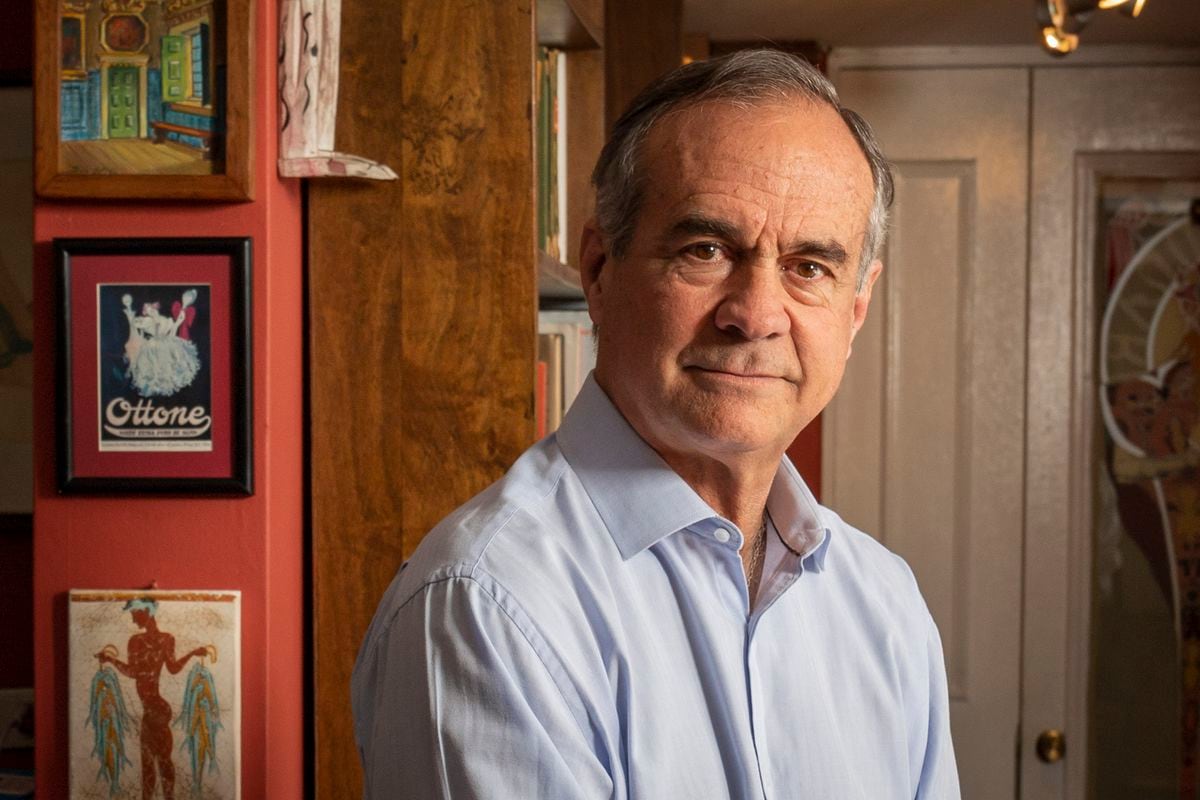President Gabriel Boric, who arrived in La Moneda last March as the spearhead of a new generation of leftists, suffers from low popularity.
Just seven months before the start of his term, which will last until March 2026, only 27% of public opinion approves of him, while 65% disapproves of him, according to the latest weekly poll by the Cadem pollster.
The low support rates break with a trend of presidents since the return to democracy in 1990, a kind of honeymoon with their electorate at least during the first year of government.
When Chilean politics faces a complex crisis – the 2019 social unrest inaugurated a constituent process that is still open – there are multiple reasons that explain the low approval of Boric and his administration, some structural and others directly related to errors. committed in the first months of mandate.
There are underlying problems that currently make it difficult to govern in Chile.
The political scientist Juan Pablo Luna, a voice heard in the Broad Front of Gabriel Boric and by the president himself, explains that, together with a political crisis, Chile faces a crisis of its development model and another of the State and its institutionality.
“This explains in part that in Chile, the best way to lose power is to win an election.
You win an election and immediately lose power.
And that not only happens because of the weakness of the political leadership and the type of policy that we have, but because the State as a tool for social transformation and incorporation appears uneven in territorial, socioeconomic, and functional terms.
The unconscious rabble
.
But Luna does not take responsibility for landing in the power of Boric and his fellow travelers.
“What is happening to this government has to do with the structural background we are talking about and with an overestimation of the leadership's ability to operate on that structure.
The current government and its cadres had the illusion that an important part of the problem had to do with a replacement of elites, when the problem of politics is related to the disconnection and social uprooting that the Broad Front shares with the parties it criticizes. .
There is a rather
naive
vision of the replacement and the moral superiority with which these new leaderships arrive at La Moneda”, says Luna, professor at the School of Government of the Catholic University.
In an interview this Friday, Luna assured that the plebiscite to exit the constituent process, where the constitutional proposal of the convention was rejected by 62%, "was the end of the Boric government, as the outbreak was for Piñera", in reference to the wave of protests in October 2019 that symbolically ended the right-wing Administration in the middle of its term.
For the researcher, however, it is not a problem in his diagnosis of society: “The sociological diagnosis regarding the malaise and the structure of that discontent is as valid as before [the plebiscite].
The government's deficit, which is also that of the entire political system, has more to do with a superficial and not very dense vision of how to operate on that malaise.
This is not a society that can be governed by Twitter or social networks.
And it is not a society that can go back to being governed merely from above with communication operations around the sending of bills.”
After the referendum, the president had to change the main pieces of his government, to his trusted ministers and decided to integrate socialism more strongly, which is not part of his original coalition.
As Minister of the Interior, Carolina Tohá, a historical leader of the center-left governments, with extensive experience, took office.
"Boric is understanding that gradualness is important to give legitimacy to profound changes," said former president Ricardo Lagos (2000-2006) in an interview with EL PAÍS.
the external scene
The political scientist Claudia Heiss, head of the Political Science career at the Faculty of Government of the University of Chile, assures that "Boric has an adverse international scenario, because the crisis due to the war in Ukraine and the increase in inflation in the world they hit an economy like Chile's hard”, which today has an annual inflation rate of 13.7%, unprecedented in the last three decades.
In September, 90% of the products that make up the basic basket rose in price and for the first time exceeded the equivalent of 62 dollars.
“Government support always drops with economic crises,” explains Heiss.
She highlights a second factor: “The public security crisis that Chile is facing”, with the articulation of organized crime, drug trafficking and a weakness of the Carabineros [military police],
although Heiss assures that it is not a problem that has originated in the current Administration.
The political scientist she talks about the increase in poverty, the increase in migration and an employment crisis that dates back to the covid-19 pandemic, which attacks women's work above all.
"It is, in short, an adverse scenario for any government," says Heiss, who is a member of one of the Broad Front parties.
The academic refers to the internal support base for the president: "Boric's great vote that allowed him to win the presidency in December [with 55% and a huge bag of votes, around 4.6 million, in a presidential with historic participation] was not only from his leftist coalition, but contained a large vote against José Antonio Kast [the candidate of the extreme right].
It was, therefore, a fairly weak base of support, "says Heiss, who has" in general, a good evaluation of what the government has done.
The political scientist highlights, above all, her fiscal responsibility policies that are promoted by the Treasury, which does not always accommodate certain sectors of the ruling parties.
She also points to a fundamental factor: Boric does not have a majority in Congress, which makes it difficult for him to carry out his legislative agenda and key reforms, such as the tax reform, which is currently being discussed in Parliament.
“The popularity of President Boric has had an evolution and behavior that we were not used to in Chile,” comments the manager of the Cadem pollster, Roberto Izikson, referring to the failed honeymoon.
In that period, Izikson says, approval of presidents always trumps disapproval, expectations are high, and mistakes are forgiven.
“Boric had none of that.
His problem is not only about the 27% support, but the significant drop, ”adds Izikson, referring to the 50% support with which the leftist president started his government last March.
At that time, his disapproval was at 20%.
Izikson does not lose sight of the low approval rating, although he adds that the minimum popularity in Chile has fallen over time and Bachelet had a minimum of 15% and Piñera reached 9%, both in their respective second governments and after two crises.
To try to explain why, Izikson divides Boric's tenure into three chapters.
At the beginning, the main problem that the president had was the formation of his Cabinet, says Cadem's manager, because he installed as ministers of La Moneda leaders who were on average 35 years old, which alienated the older public opinion from 45. "Older people felt that this was an inexperienced government," says Izikson.
He adds that it was also a mistake that the Government put all the chips to push the Approval option in the referendum, which failed, "with obvious electoral interventionism."
A third moment, according to Izikson, began with the defeat in the referendum, where the Approval lost in all the electoral strongholds of the left, including the popular sectors.
"The government was left without capital," says the pollster, who acknowledges that "Boric received a complex country, as has not happened since the first democratic government led by Patricio Aylwin" after the dictatorship.
Subscribe here to the EL PAÍS América newsletter and receive all the key information on current affairs in the region.




/cloudfront-eu-central-1.images.arcpublishing.com/prisa/IF24TOV3MFHHROUE2LMCLODXWI.jpg)



/cloudfront-eu-central-1.images.arcpublishing.com/prisa/DAXPXX7XEC2R2VNNOX5XEX4T2U.jpg)
